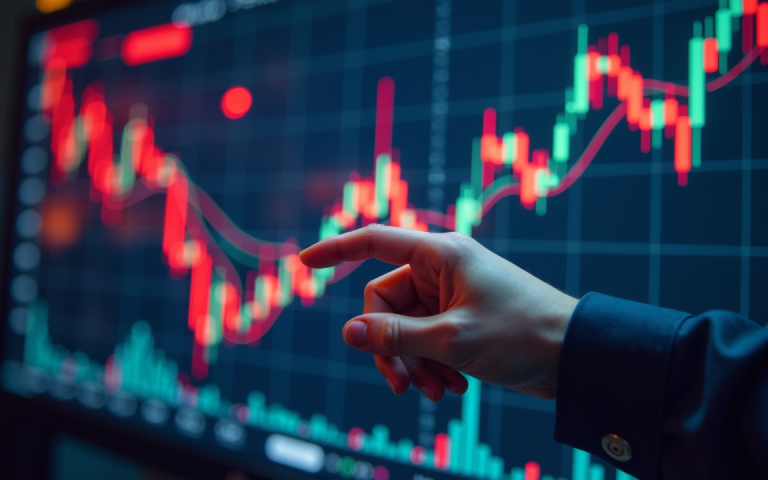Asian stock markets presented a mixed picture on Thursday, with Japanese equities climbing to a four-month high while other regional indices stuttered.
Investors are navigating a complex landscape of geopolitical, economic, and fiscal uncertainties as they brace for US President Donald Trump’s fast-approaching deadline on tariffs.
A fragile ceasefire between Israel and Iran has provided some market relief, but attention is shifting to US policy and its potential impact on global markets.
Markets have been somewhat soothed by a ceasefire between Israel and Iran that appears to be holding, for now.
This has reduced the immediate risk of major disruptions to the global oil trade and helped underpin investor sentiment.
However, the calm is precarious, as financial markets remain on edge over President Trump’s chaotic trade policies, with his July 9 deadline for reaching trade deals looming large.
This mix of cautious relief and forward-looking anxiety was reflected in market movements.
MSCI’s broadest index of Asia-Pacific shares outside Japan was little changed in early trading, following a session where the rally on Wall Street took a breather overnight.
Tokyo’s Nikkei, however, stood out, rising 0.9 percent to a four-month high.
US dollar under pressure amid Fed independence concerns
A significant development influencing currency markets is the pressure on the US dollar, which saw its selling pressure intensify after a media report suggested that President Trump has considered selecting and announcing a replacement for Federal Reserve Chair Jerome Powell by September or October.
This move is widely seen as an attempt to undermine Powell’s position.
This speculation pushed the euro to its strongest level against the dollar since November 2021, last fetching $1.6805.
The Swiss franc also firmed to a decade-high, while the Japanese yen, a traditional safe-haven currency, strengthened 0.35 percent to 144.70 per dollar.
President Trump has repeatedly criticized Powell for not cutting interest rates and has floated the idea of either firing him or naming a successor soon.
These actions have dented investor confidence in US assets and raised concerns about the independence of the US central bank.
“I think it’s a given that Trump’s pick to succeed Powell, when it comes, will be one that sits at the highly dovish end of the spectrum and will support Trump’s agenda of lowering interest rates,” commented Tony Sycamore, a market analyst at IG.
The issue with this is it will resurface questions from earlier in the year around the Fed’s independence, which, as we saw, undermines confidence in the Fed and the USD.
The dollar index, which measures the US currency against six rivals, has been languishing at its lowest level since March 2022.
The index has slid 10 percent this year as investors, worried by the impact of Trump’s tariffs on US growth, have started to look for alternatives.
Fed’s cautious stance and broader economic risks
Fed Chair Jerome Powell, who resumed his congressional testimony on Wednesday, acknowledged the potential impact of Trump’s trade policies.
He stated that the tariff plans may well just cause a one-time jump in prices, but he also noted that the risk it could fuel more persistent inflation is significant enough for the central bank to be careful in considering further rate cuts.
Fed officials still anticipate cutting interest rates this year, but the timing remains uncertain.
They are waiting for more clarity on the looming trade deadlines, the scope of the tariffs that will ultimately be imposed, and how these rising import levies will influence prices and overall economic growth.
“No one knows exactly how tariffs will impact inflation, which will keep central banks in conservative mode, particularly the Fed,” noted Bank of America strategists in a report.
They also highlighted that downside risks to global growth remain relevant, not only due to trade wars but also due to geopolitical developments.
“We are carefully monitoring fiscal policy across key countries that can affect global interest rates. Unsustainable fiscal dynamics can trigger an accident in bond markets,” they warned.
Indian markets poised for muted start after two-day rally
India’s share benchmarks are likely to see a muted start on Thursday, in line with their Asian peers, after rising over the previous two sessions on optimism from the Israel-Iran ceasefire.
The Gift Nifty futures were trading at 25,292.5 points as of 7:54 a.m. IST, indicating that the Nifty 50 will likely open around its previous close of 25,244.75 points.
The benchmark Nifty and Sensex rose by about 1% over the last two sessions, soaring to near nine-month highs as the easing of tensions in the Middle East drove a global risk-on rally.
Commodities watch: oil prices stabilize
In commodity markets, oil prices inched higher, continuing their recovery after a volatile month influenced by the conflict between longtime rivals Israel and Iran.
Brent crude futures rose 0.2 percent to $67.82 a barrel, while US West Texas Intermediate (WTI) crude gained 0.28 percent to $65.1.
The post Asian markets open: Nikkei gains 0.9% as investors weigh ceasefire, Sensex opens flat appeared first on Invezz

